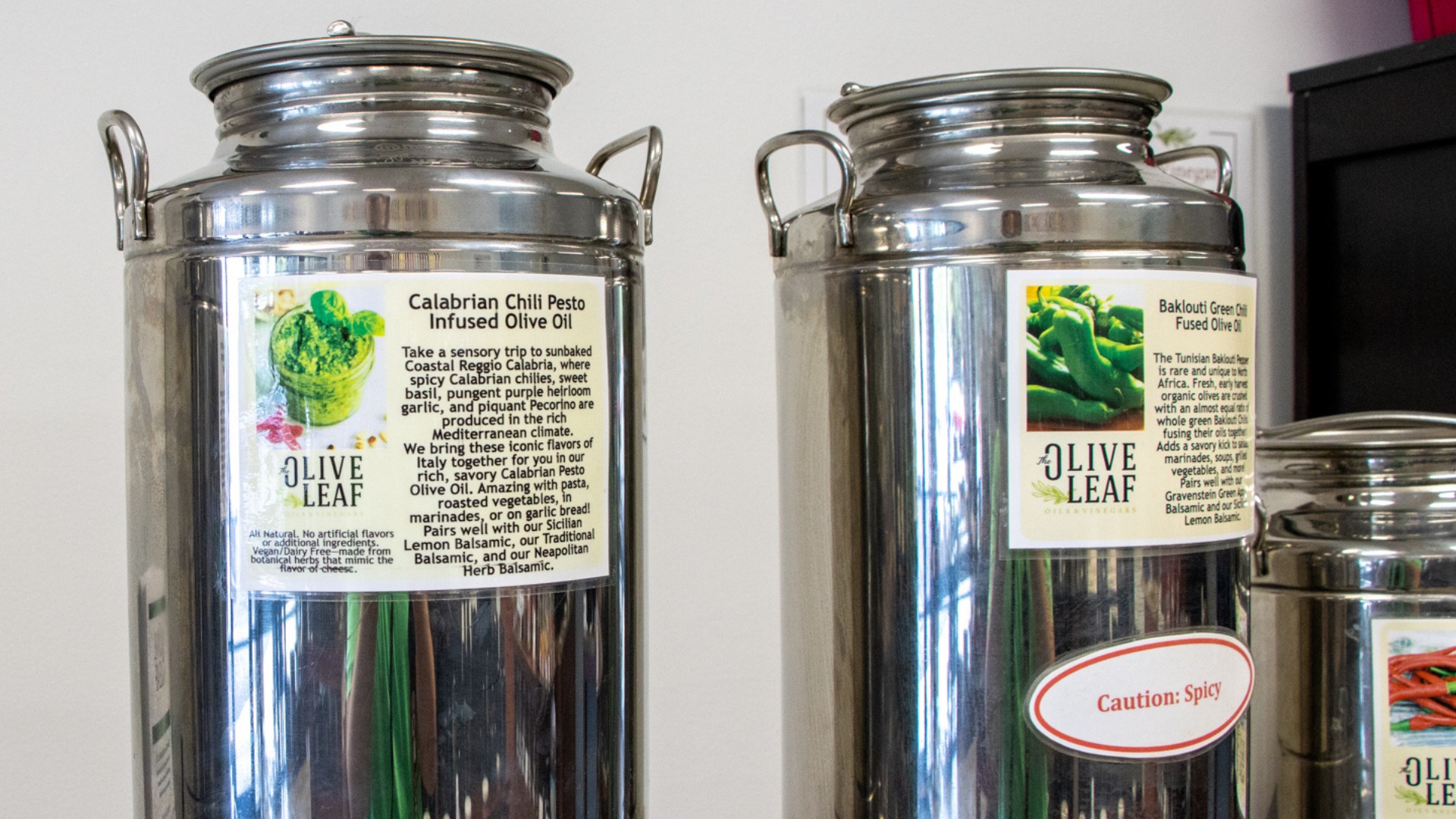5 Myths About Olive Oil (and the Truth Behind Them)
Aug 22nd 2025
Olive oil is one of the most widely used ingredients in home kitchens — but it’s also one of the most misunderstood. From cooking myths to storage confusion, there’s a lot of misinformation floating around about this golden pantry staple.
At The Olive Leaf, we’re here to set the record straight. Whether you’re cooking with olive oil daily or just drizzling it on your salad, here are 5 common olive oil myths — and the truth you should know.
Myth #1: You Can’t Cook With Extra Virgin Olive Oil
Truth: You can absolutely cook with extra virgin olive oil — and you should.
The idea that extra virgin olive oil (EVOO) isn’t safe for cooking comes from confusion about smoke points. In reality, high-quality EVOO has a smoke point between 375°F and 410°F, which is perfectly fine for most stovetop cooking and roasting.
Plus, EVOO contains antioxidants and healthy fats that actually make it more stable at heat compared to refined oils. So go ahead and sauté, roast, and even lightly fry with it.
Myth #2: Olive Oil Never Expires
Truth: Olive oil does go bad — and freshness matters.
Unlike vinegar or honey, olive oil is a fresh product with a limited shelf life. Over time, exposure to light, heat, and air can cause it to oxidize, lose flavor, and eventually go rancid.
At The Olive Leaf, we date our bottles by harvest date, not just “best by” — so you always know how fresh it is. We recommend using your olive oil within 12–18 months of harvest and within 6 months of opening.
Myth #3: All Olive Oils Are the Same
Truth: There’s a huge difference between oils labeled “olive oil” and real extra virgin olive oil.
Many mass-market olive oils are blends, highly processed, or even cut with other types of oil. EVOO is the highest grade — it’s cold-pressed, unrefined, and packed with flavor and nutrients.
When you shop with us at The Olive Leaf, you’re getting 100% real extra virgin olive oil — never diluted, blended, or chemically altered.
Myth #4: Olive Oil Should Be Refrigerated
Truth: Not unless you want it to solidify and turn cloudy.
While refrigeration won’t ruin olive oil, it doesn’t extend shelf life significantly and makes the oil harder to use. The best place to store your oil is in a cool, dark cabinet, away from heat and sunlight. That keeps it fresher for longer without the need for the fridge.
Myth #5: A Higher Price Always Means Higher Quality
Truth: Price doesn’t always reflect freshness or purity.
Some fancy olive oils are overpriced because of packaging or branding — not because they’re fresher or better tasting. What really matters is:
- Where it was harvested
- When it was harvested
- How it was stored
At The Olive Leaf, we prioritize freshness, flavor, and transparency — not just a fancy label. You can even taste before you buy at our in-store tasting bar.
Final Thoughts
Understanding the truth about olive oil helps you make smarter choices in the kitchen — and get better results on your plate. Whether you’re cooking, dipping, or finishing a dish, olive oil should be fresh, real, and used with confidence.
Shop Real Extra Virgin Olive Oil at The Olive Leaf
Looking for high-quality olive oil you can trust? We’ve got you covered with a curated selection of fresh, cold-pressed oils from trusted producers — no myths, no guesswork.

